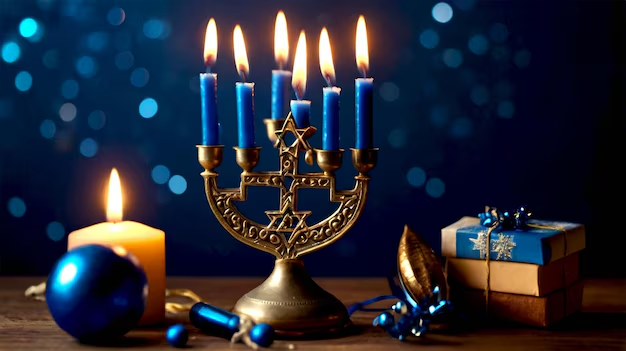The True Meaning of Rosh Hashanah.
Rosh Hashanah, which literally means “Head of the Year,” is one of the “appointed feasts of the LORD” commanded to Israel in the Hebrew Bible (Old Testament). References to Rosh Hashanah can be found in the Torah, the Jewish Law contained in the first five books of the Hebrew Bible. In Leviticus 23:23-25, it states: “And the LORD spoke to Moses, saying, ‘Speak to the people of Israel, saying, In the seventh month, on the first day of the month, you shall observe a day of solemn rest, a memorial proclaimed with the blast of trumpets, a holy convocation. You shall not do any ordinary work, and you shall present a food offering to the LORD.’”
Rosh Hashanah, also known as the Day of Trumpets, is celebrated with the blowing of the shofar, or ram’s horn, in synagogues around the world. It falls on the first day of the Hebrew month of Tishri, which usually corresponds to September or October. This holiday occurs on the seventh new moon of the Jewish year. After the destruction of the Jewish Temple in Jerusalem in AD 70, this feast day began to be called Rosh Hashanah and became the start of the Jewish civil calendar.
Rosh Hashanah marks the beginning of ten days leading up to Yom Kippur, the holiest day in the Jewish year, also known as the Day of Atonement. These ten days are called The Days of Awe in modern Judaism. The sound of the shofar on Rosh Hashanah serves as a wake-up call and a reminder that the Day of Atonement is approaching. It invites individuals to engage in repentance and turning back to the LORD. During these ten days, individuals reflect on their actions, search their hearts, and evaluate themselves.
The sound of the shofar has historically been a call for Jews to review their lives, make amends with those they may have wronged over the past year, and seek forgiveness for broken promises. Thus, the primary theme of Rosh Hashanah is repentance.
A standard greeting during Rosh Hashanah is “May your name be inscribed,” a well-wish for one’s name to be written in the Book of Life. People often enjoy sweet foods during this holiday, such as treats made with apples, honey, raisins, figs, and pomegranates. Eating sweet foods symbolizes the hope for a “sweet” year and reflects the idea that these sweets can help alleviate the sorrow associated with repentance. For example, when eating pomegranates, some celebrants express the wish that their good deeds will be as numerous as the seeds of the pomegranate.
According to rabbinic tradition, on Rosh Hashanah, the destinies of the righteous and the wicked are sealed. The righteous are inscribed in the Book of Life, while the wicked are inscribed in the Book of Death. However, most individuals are not written into either book immediately. They are given ten days until Yom Kippur to engage in repentance and self-examination before their fate is sealed. On the Day of Atonement, everyone has their name inscribed into one of the two books.
Like all of the LORD’s appointed days in the Hebrew Bible, Rosh Hashanah points Christians to a greater reality. Those who have placed their faith in the Jewish Messiah, Jesus, understand the true meaning of this call to repentance and turning our hearts toward God. The God of the Bible indeed has a Book of Life and a Book of Death. The Bible clearly warns that on the Day of Judgment, which is yet to come, anyone whose name is not found in the Book of Life will reside in the lake of fire for eternity (Revelation 20:15).
For those who trust in the atoning work of Jesus through His life, death, burial, and resurrection (2 Corinthians 5:21), their names are already written in the Lamb’s Book of Life. As believers in Jesus, we listen for that trumpet call: “For the Lord himself will descend from heaven with a cry of command, with the voice of an archangel, and with the sound of the trumpet of God. And the dead in Christ will rise first. Then we who are alive, who are left, will be caught up together with them in the clouds to meet the Lord in the air, and so we will always be with the Lord. Therefore, encourage one another with these words” (1 Thessalonians 4:16).
A happy Rosh Hashanah to you and your family. May all your names be inscribed in the Book of Life.
(I have gathered most of the material for this blog from “Got Questions,” one of my favorite sources.
In His Great Name (Psalm 72:17)
Dr. Robert Bryant

